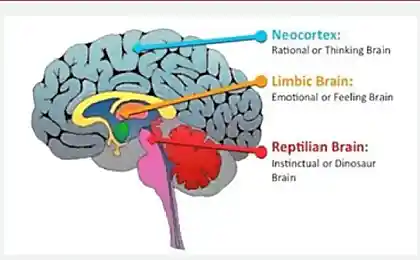509
Lack of sleep leads to irreversible brain damage
The results of a study conducted by researchers at the University of Pennsylvania, USA, proved that chronic lack of sleep not only affects cognitive functions (including attention, memory, thinking), but can also lead to irreversible damage to neurons.We often try to compensate for a chronic sleep deficit increase his time on weekends. “However, studies of human cognitive functions prove that even after three nights of full sleep nor focus or other functions are not fully restored. This raises the question of the severity of metabolic disturbances in the brain,” says one of the study's authors, doctor of medical Sciences Sigrid Vizi.

Scientists have studied the brain of mice in normal functioning and in conditions of sleep deprivation. It turned out that reacting to short-term lack of sleep, the brain cells responsible for cognitive functions, stimulate protein sirtuin third type, protecting nerve cells from destruction. With increasing time without sleep protective protein is not activated, and after a few days of lack of sleep a significant decrease in its concentration resulted in the deaths of 25% of brain cells of mice. Thus, the short-term sleep deprivation nerve cells are able to adapt, but long-term sleep disorders, they lose their self-protection feature and are destroyed. The future plans of scientists – the study of similar processes in the human brain, however, the obtained results clearly indicate that chronic sleep deprivation can lead to irreversible brain damage, which once again underlines the urgency regular full sleep.
Source: estet-portal.com

Scientists have studied the brain of mice in normal functioning and in conditions of sleep deprivation. It turned out that reacting to short-term lack of sleep, the brain cells responsible for cognitive functions, stimulate protein sirtuin third type, protecting nerve cells from destruction. With increasing time without sleep protective protein is not activated, and after a few days of lack of sleep a significant decrease in its concentration resulted in the deaths of 25% of brain cells of mice. Thus, the short-term sleep deprivation nerve cells are able to adapt, but long-term sleep disorders, they lose their self-protection feature and are destroyed. The future plans of scientists – the study of similar processes in the human brain, however, the obtained results clearly indicate that chronic sleep deprivation can lead to irreversible brain damage, which once again underlines the urgency regular full sleep.
Source: estet-portal.com























